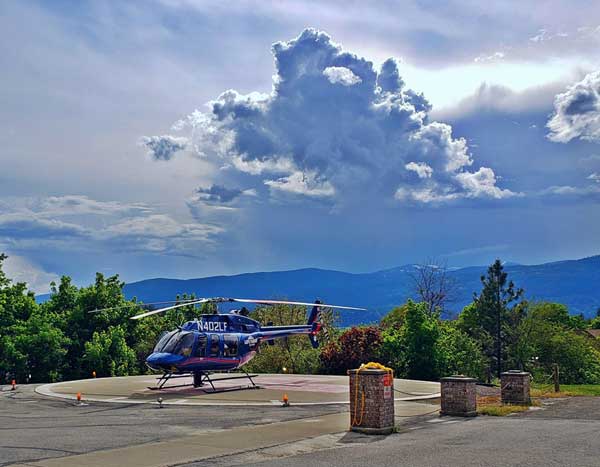TSE and COVID-19
Here to Help – TSE and COVID-19
By: Wanda Wilkerson RN, BSN, CEN
June 4, 2020

Boundary Community Hospital, Boundary Ambulance, and Life Flight Network work as a team to get patients to the highest level of care as swiftly as possible for better outcomes.
The Covid-19 Pandemic has had many negative impacts on the medical field, but one unanticipated impact is on community members who are experiencing Time Sensitive Emergencies (TSE) like stroke and heart attack.
When the Pandemic began, all across the nation people were directed to remain at home and not come into hospital emergency departments (ED) in order to avoid overtaxing front-line emergency staff. People listened, they stayed home and self-isolated and watched the news and became more fearful. According to the Washington Post, ED volumes have been down by more than half all over the country. This in itself is not a bad thing until you wonder what has happened to all the heart attack, stroke, and trauma patients. From the highest acuity to the lowest acuity, people seem to be avoiding needed medical care out of fear of infection from the Covid-19.
It is extremely important to seek medical help for those emergent time sensitive events such as Heart Attacks, Strokes, and Trauma; for those times when every second counts to save heart muscle and brain matter; for those times when any delay in care and medical treatment can have a huge impact on the health of the patient and their families for the rest of their lives.
The news media have placed the fear in us to the point that many very sick people are not following up with their physicians or seeking emergency care, or even calling 911 for an ambulance when it is needed. There is so much misinformation out there resulting in people often not knowing who or what to believe. The increased stress alone would have us believe that there would be more heart attacks not less.
According to the Washington Post: “A report to be published by the Journal of American College of Cardiology on nine high volume Cardiac Catheterization labs across the country found a 38 percent drop in patients being treated for a life threatening event known as a STEMI – the blockage of one of the major arteries that supplies oxygen-rich blood to the heart. The study compared what happened this past March, when Covid-19 cases were climbing, with the treatments delivered from January 1, 2019, through Feb. 2020.”
The number of Stroke patients seeking medical help is also down by 30 percent in emergency departments as reported by the Washington Post.
Don’t delay if you recognize any symptoms of a STEMI heart attack which include chest pain, shortness of breath, dizziness, nausea, sweating, and possible pain up into the jaw or down the arm. Stroke symptoms include facial drooping; arms drift downward when asked to hold them up, as well as slurred speech. If the person shows any of these symptoms, call 911 immediately. Fast emergency medical services (EMS) transport to the hospital with pre-hospital notification that they are on the way can save valuable time when time is of the essence.
“Please seek medical attention when you or your loved ones need it,” says Emergency Nurse Wanda Wilkerson, RN. “Boundary Community Hospital has changed what we are doing and have new regulations, policies, and guidelines to help keep you and your loved ones safe as well as keeping the hospital and emergency staff safe. The key is to make sure people with symptoms overcome their fear and get prompt treatment that may save their lives or avoid long-term complications of untreated heart attacks and strokes.”
Boundary Community Hospital has been designated as a Level II STEMI, Level III Stroke, and Level IV Trauma Center by the State of Idaho. The designations for the Hospital are part of the Idaho Time Sensitive Emergency System (TSE) and are reserved for Hospitals that meet the stringent criteria established by the State as part of the statewide TSE system of care that includes three of the top five causes of death in Idaho: trauma, stroke, and heart attack.
